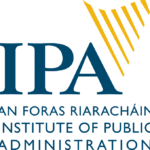Risk management has become a critical skill for individuals and organizations alike. Taking a risk management course equips professionals with the tools and strategies needed to identify, assess, and mitigate potential risks, ensuring that businesses remain resilient, adaptive, and sustainable.
Here’s what you need to know about risk management and how a specialized course can boost your expertise and career.
Understanding the Importance of Risk Management
Risk management isn’t just about avoiding problems—it’s about planning and strategizing to create an organization that’s ready for whatever comes its way. Effective risk management allows businesses to identify potential threats, understand their impact, and develop strategies to manage them proactively. Whether dealing with financial risks, operational disruptions, cybersecurity threats, or even natural disasters, having a solid risk management plan can make all the difference in sustaining operations and protecting both assets and reputation.
Professionals trained in risk management play a crucial role in helping organizations minimize their exposure to risk, improve decision-making, and safeguard long-term goals. This expertise is valuable across industries, from finance and healthcare to manufacturing and technology, where risk can come from both internal and external sources.
What to Expect in a Risk Management Course
A risk management course typically covers essential frameworks and tools to identify, assess, and address risks effectively. Here are some core areas often included in the curriculum:
- Risk Identification and Assessment
- Learn to identify risks that could impact an organization, from financial and operational risks to compliance and reputational risks. Understanding the full scope of potential threats is essential for creating comprehensive management strategies.
- Quantitative and Qualitative Risk Analysis
- Courses provide training in risk assessment techniques, including quantitative methods (such as statistical and financial modeling) and qualitative assessments (such as scenario planning and expert judgment).
- Risk Mitigation Strategies
- Explore the tools and tactics used to reduce risk exposure, such as implementing controls, transferring risk through insurance, and developing contingency plans to handle unexpected events.
- Crisis Management and Recovery Planning
- Learn how to design and implement response plans for crises, ensuring organizations can continue operating during disruptions. This training often includes real-world case studies to demonstrate the importance of quick and effective decision-making in high-pressure situations.
- Regulatory Compliance and Ethics
- Staying compliant with regulatory requirements is a key part of risk management. Many courses cover relevant laws and ethical considerations to ensure that professionals understand the importance of maintaining legal and moral standards.
- Risk Communication and Reporting
- An effective risk manager must also be skilled in communication, able to present risk assessments and strategies to stakeholders clearly and concisely. Courses often include training on how to report risks and mitigation plans to senior management and boards.
Benefits of Taking a Risk Management Course
A risk management course can offer numerous advantages to both experienced professionals and those new to the field:
- Enhanced Decision-Making Skills: By learning to assess risks accurately, you can make better-informed decisions that align with an organization’s goals and resources.
- Improved Career Prospects: As organizations increasingly recognize the importance of risk management, demand for skilled risk managers continues to rise. Risk management skills are highly sought after in roles across finance, project management, healthcare, technology, and more.
- Increased Organizational Value: By gaining expertise in risk management, you become an invaluable asset to your organization, helping it mitigate potential setbacks and maintain operational stability.
- Preparation for Professional Certifications: Many risk management courses prepare students for certifications such as the Certified Risk Manager (CRM), Risk Management Professional (RMP), and Certified Information Systems Risk Manager (CISRM), which can further enhance career prospects.
- Broader Knowledge of Risk Across Industries: With insights into risk types and management strategies applicable to various industries, you’re prepared for diverse career opportunities and challenges.
Who Should Take a Risk Management Course?
Risk management courses are beneficial for a wide range of professionals, including:
- Business Managers and Executives: Leaders responsible for guiding an organization’s direction benefit from understanding how to manage risks effectively.
- Finance and Insurance Professionals: Risk management is a fundamental part of finance and insurance, as these fields involve assessing and managing financial uncertainties.
- Project Managers: Project managers often encounter various risks that can derail projects. Risk management skills are essential for completing projects on time and within budget.
- IT and Cybersecurity Professionals: With increasing reliance on digital systems, IT professionals need to be prepared for cyber threats. Risk management helps them protect data and maintain system integrity.
- Human Resources Professionals: HR faces unique risks such as compliance, health and safety, and employee relations. Risk management enables HR teams to create safer, more compliant workplaces.
Making the Most of Your Risk Management Education
Once you’ve completed a risk management course, you can immediately start applying your new skills in your current role or explore career advancement opportunities. Here are a few ways to leverage your expertise:
- Implementing Risk Assessments: Conduct risk assessments in your department or organization, identifying potential vulnerabilities and developing actionable plans to address them.
- Building a Resilient Team: Educate your team on the importance of risk awareness, fostering a culture where everyone is proactive in identifying and managing risks.
- Developing a Crisis Plan: Create a crisis response plan for your team or organization, ensuring everyone knows how to react to various types of disruptions.
- Expanding Your Professional Network: Risk management courses often provide networking opportunities with professionals from various industries, allowing you to exchange insights and stay current on best practices.
Take the Next Step Toward Becoming a Risk Management Expert
Whether you’re just beginning your career or looking to enhance your current role, a risk management course is a valuable investment in both your professional skills and the resilience of the organizations you work with. With a strong foundation in risk management, you’ll be well-prepared to tackle uncertainties and contribute to the stability and success of your team, company, or even your industry. Embrace the future with confidence, knowing you have the knowledge to navigate whatever comes your way.
Diploma In Risk Management
Alison
This free online course will give you a full and comprehensive run through of risk management procedures and practices. This free online risk management course will help you identify perils and hazards and improve your skills in managing risk. Risk management is essential for the success of every business as it helps identify, assess, and manage financial problems at every turn. The course will teach you why there is a need for risk management tools as well as the main steps of risk management that every business professional needs to know.
| Course Code | 1406 |
| College Name | Alison |
| Course Category | Business, Business & Finance |
| Course Type | Online Learning |
| Course Qualification | CPD Diploma |
| Course Location | Online Course |
| Delivery mode | |
| Course Fee | Free |
| Course Duration | 10-15 hours |
| Entry Requirements | Like all courses on the Alison Free Learning platform this is a free, CPD-accredited course. A Graduate can choose to buy a certificate or diploma upon successful completion of a course, but this is not required or necessary. At Alison we believe that free education, more than anything, has the power to break through boundaries and transform lives. Alison is the world’s largest free online empowerment platform for education and skills training, offering over 5000 CPD accredited courses and a range of impactful career development tools. It is a for-profit social enterprise dedicated to making it possible for anyone, to study anything, anywhere, at any time, for free online, at any subject level. Through our mission, we are a catalyst for positive social change, creating opportunity, prosperity, and equality for everyone. |
| Career Path | In This Free Course, You Will Learn How To • Define risk from a wide variety of perspectives • List the various processes that risk professionals engage in to identify and mitigate risk • Describe the process that insurers go through when insuring an exposure • Describe the basic requirements and characteristics of insurance contracts • Describe the range of risks that List the various risks that global corporations face • State and define the most common sources of liability in society • Define the risks that all individuals face throughout the life cycle • Discuss the various ways in which life cycle risks can be mitigated |
















Comments